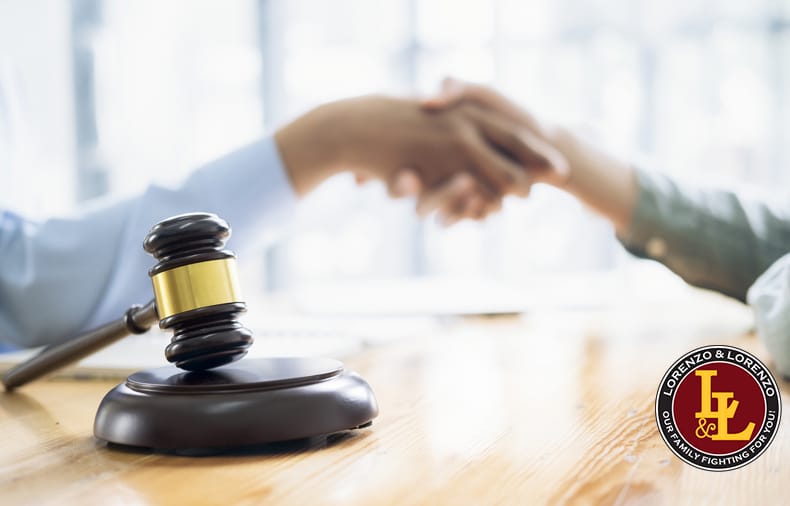Tips and suggestions on what YOU can do to help your attorney (and things to avoid)
Serious injuries caused by negligence can involve a myriad of problems and consequences, including disability, pain and suffering, loss of work and wages and jaw-dropping medical expenses. If the liability of your personal injury lies in the hands of a third party—like another person, an employer, government agency or business entity—you may be able to obtain compensation to help you recover from your economic and non-economic damages.
However, you should first hire an experienced personal injury lawyer to help you navigate the process and get you the maximum possible compensation for your injuries and damages. How you communicate with your personal injury lawyer goes a long way in determining how your case pans out.
Here are a few tips on how to help your attorney get the best possible results for your personal injury case.
Tip #1: Listen to your lawyer
Personal injury lawsuits are often the result of birth injuries, traffic accidents, workplace injuries, medical malpractices and defective products. In the U.S., it’s estimated that people suffer more than 31 million injuries every year.
Out of all the personal injury cases that are filled, only a fraction of them go to court. The ones that do go to court often lead to unfavorable outcomes, especially when the plaintiff doesn’t have a lawyer representing them or they are represented by an incompetent and inexperienced lawyer.
It’s important to hire an experienced and knowledgeable lawyer who has your best interests at heart. They should also be someone you trust so that it is easier for you to listen to them, knowing they are giving your case their best efforts. Follow their advice and instructions on what you should and shouldn’t do to the letter, from the beginning of the claim filing process until the end.
Tip #2: Tell your attorney the whole story, and answer questions truthfully
Lawyers are expected to maintain strict attorney-client confidence, which means anything you share with them must remain between you. This is meant to make you feel confident and secure about revealing all the nitty-gritty details of your case to them.
You cannot afford to leave out the small facts that you find irrelevant, the embarrassing bits of the accident or the factors that may make you share in the liability. Leaving out these details from the start gives the defendants a stronger case against you when they are discovered and brought up during hearings. It will also put your lawyer in a tough spot as they won’t be in a favorable position to defend you.
Tip #3: Avoid sharing information about your case with others
Sometimes, after an accident, you find yourself being vulnerable and tempted to share details of your case with friends, family and coworkers. Remember that insurance companies are always looking for ways to discredit your case and reduce your compensation. So, it’s in your best interests not to say anything to anyone (other than your attorney) as it may be used against you.
Above all, avoid sharing information about your accident or injury on social media.
Your status, posts and tweets should not reveal too much about how you are doing physically or emotionally. For instance, long posts explaining how you have been fairing emotionally or mentally, or videos of you bungee jumping 2 weeks after a leg injury, might be a deterrent to the progress of your case as the other side can misuse these posts to show that your injuries are not as severe as you claim.
Tip #4: Attend all doctor appointments
Your first priority needs to be healing and getting back on your feet. This is impossible if you keep missing your doctor’s appointments and fail to follow their instructions. Missing appointments and dismissing your doctor’s instructions diminishes your chances of obtaining full and fair compensation as it may seem to the courts like your injuries are not as serious as reported.
Remember to maintain copies of all your medical records as they help to support your claim.
Tip #5: Speak up when in doubt
Although many lawyers prefer handling cases without disruptions, remember that the case is still yours and you have the right to speak up. Feel free to ask questions whenever you are confused, in doubt or need some kind of clarification. Asking questions ensures you are well-informed on all the intricacies of your case, which is an effective way of protecting your interests.
Tip #6: Communicate consistently
For a successful client-lawyer relationship, you must learn how to work with your lawyer seamlessly. The communication should be a 2-way street so that you can easily reach each other when needed. Inconsistent or delayed communication has the potential of dragging your case out.
Find the best lawyer to represent your case
A personal injury lawyer has the potential to make or break your case. Your lawyer will help you with documentation, case building, negotiating for settlements and trial, if need be. They should have the experience, focus and ability to help you achieve the best results for your case.
However, you too have an important role to play in making your lawyer’s job easier and more conducive.







